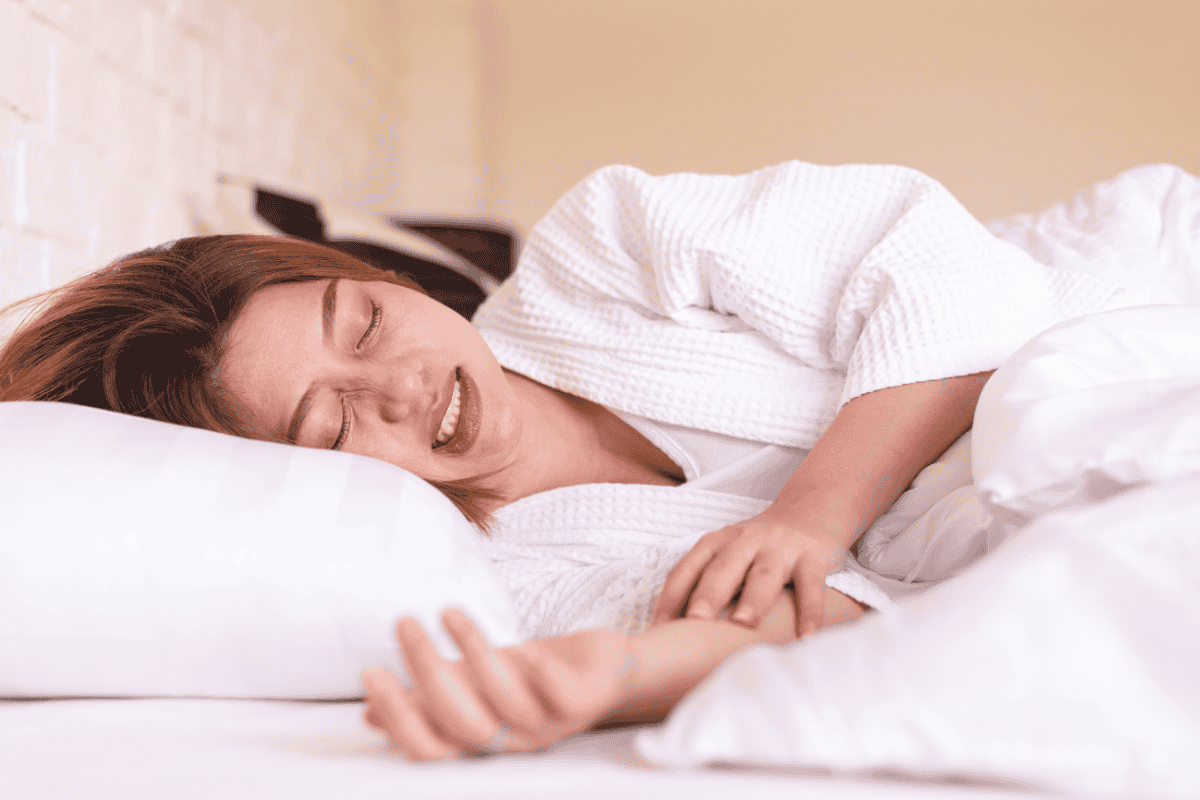
Teeth grinding, or bruxism, is a common issue that often occurs during sleep. Many people are unaware that they grind their teeth. Over time, this unconscious habit can lead to a range of dental and health issues if left unaddressed.
Identifying teeth grinding can be difficult, but recognising certain signs can help. We will cover the symptoms, how to confirm them, and treatments to protect your teeth and ease pain.
Common signs and symptoms of teeth grinding.
Teeth grinding often causes physical symptoms, also known as bruxism. Below are some of the common symptoms to be aware of:
- Jaw pain or soreness: One of the most noticeable signs of teeth grinding is discomfort in the jaw. If you often wake up with a sore or tight jaw, it could be a sign of bruxism. This soreness might also extend to the face, particularly around the temples.
- Headaches: Morning headaches, especially those centred around the temples, are another common symptom. Grinding your teeth at night can strain the jaw muscles and cause tension headaches.
- Worn-down teeth: Grinding can wear down your teeth over time. This might thin the enamel or expose the dentin, causing sensitivity.
- Tooth sensitivity: A strong reaction to hot or cold foods may mean you have worn down your enamel from grinding. If the enamel wears away, teeth may become more vulnerable to temperature changes.
- Chipped or Cracked Teeth: Chronic teeth grinding can chip or fracture your teeth. Small cracks or chips, especially on the edges of your teeth, may mean you grind your teeth in your sleep.
- Clenching or grinding sounds: If a partner or family member hears you grinding your teeth in your sleep, it may be a sign of bruxism.
- Disrupted sleep: Teeth grinding can also lead to disturbed sleep. If you wake up many times at night or feel restless, bruxism might be the cause.
How can you confirm whether you grind your teeth at night?
To confirm if you are grinding your teeth at night, consult a dentist. A dental professional can check your teeth for wear and tear. They can also check for jaw misalignment. They may ask about your stress levels, as this can cause teeth grinding.
If your dentist suspects severe bruxism, they may refer you to a specialist or suggest a sleep study to detail your sleep patterns. It can help identify if a sleep disorder might be causing the grinding.
Treatment options for teeth grinding.
If you have bruxism, several treatments can help. They can prevent tooth damage and ease any discomfort. These might include:
- Night guards: A custom night guard can protect your teeth from grinding. These guards cover your upper and lower teeth to reduce pressure and prevent wear.
- Stress management: Stress is a common trigger for teeth grinding. So, techniques like meditation, relaxation exercises, or therapy can help reduce bruxism.
- Correcting misaligned teeth: If your misaligned teeth are causing the grinding, see your dentist. They may recommend orthodontics to fix your bite.
- Muscle relaxants: In severe cases, a dentist may prescribe or recommend Botox. This can relax the jaw muscles and reduce grinding.
Ending note
If you have symptoms of teeth grinding, please address them early. This can prevent damage like worn-down teeth or jaw pain. Stress, sleep disorders, or misalignment can cause bruxism. Finding the cause helps in finding the right treatment.
At the Local Dental Clinic in Deniliquin, NSW, our experts can help. We offer personalised solutions for bruxism, including night guards and stress management. Book an appointment today and protect your smile for the future!
Go Back


















